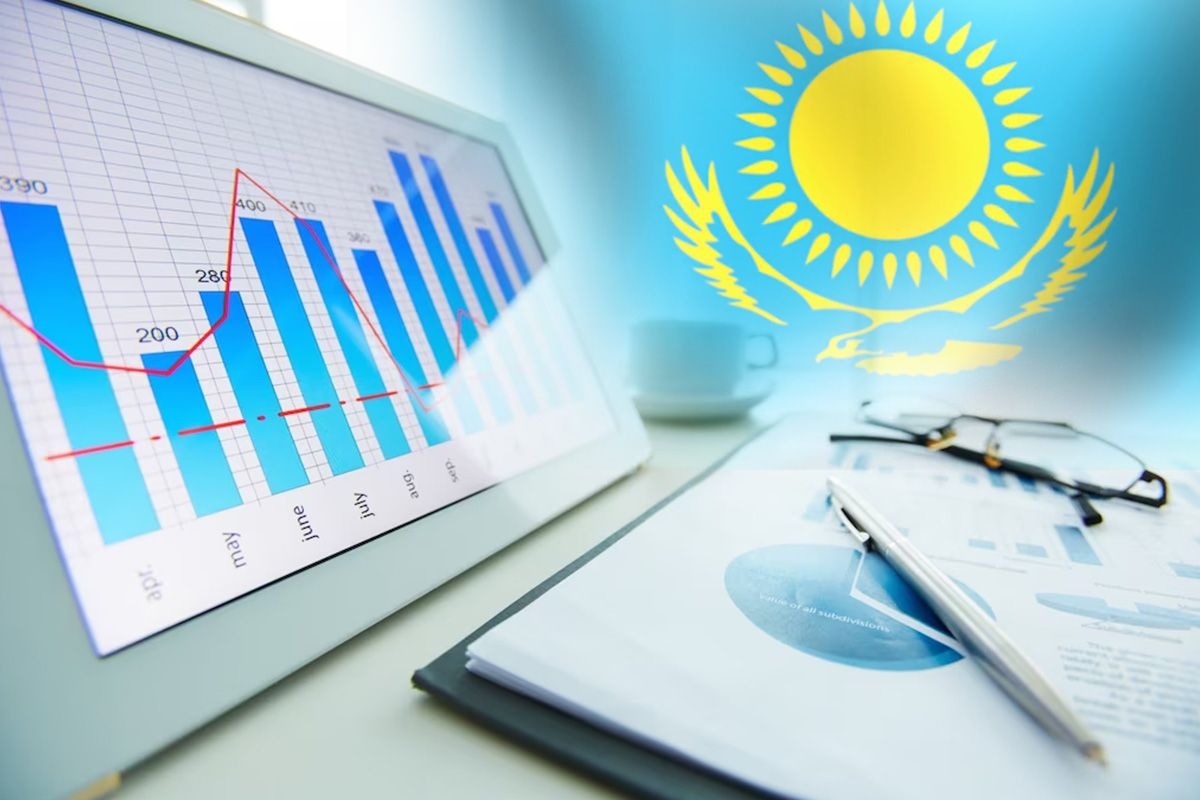ASTANA – Kazakhstan aims to double its national economy to $450 billion by 2029, with international financial institutions projecting economic growth between 3% and 4% this year, reported Kazinform.

Photo credit: kapital.kz.
The Ministry of National Economy’s forecast for socio-economic development between 2024 and 2028 predicts real economic growth at 5.3% in 2024, rising to 6% by 2028.
The National Bank of Kazakhstan outlines estimates for gross domestic product (GDP) elevation ranging from 3.2-4.2% in 2024 to 5.5-6.5% in 2025 in its November 2023 report on monetary policy.
The adjustments are attributed to the postponement of the Tengiz field expansion project to 2025. Increased internal demand, coupled with substantial government spending, is expected to drive economic growth in 2024.
Economic expectations from analysts
Rasul Rysmambetov, a Kazakh economic and financial expert, offers an optimistic outlook for 2024, emphasizing the government’s need for efficient resource utilization and strategic execution of plans.
“I believe that this year can be favorable if the government manages its budget wisely, avoiding the approach of solving every problem by pouring money into it. It is crucial to address issues through efficient management, not relying solely on financial resources,” said Rysmambetov.
He anticipates a strengthening of the tenge’s value, particularly if the United States dollar weakens due to a decrease in the Federal Reserve’s interest rates and the euro weakens due to the stimulative policy of the European Central Bank.
Rysmambetov also emphasizes the importance of focusing on regional development, highlighting that excessive centralized planning often hinders regional progress.
Сommunal infrastructure modernization, including heating, electricity, water, and land, is a critical priority for the Kazakh regions.
The expert advocates for supporting private sector initiatives on a local scale, underscoring the need to offer incentives to domestic investors with businesses in Kazakhstan. Such support is crucial for fostering job creation and promoting the growth of industries.
Challenges: high inflation
Despite reducing inflation from a high of over 20% in February 2023 to 9.8%, Kazakhstan still faces a challenge.
The International Monetary Fund (IMF) advises caution in easing monetary policy until inflation approaches the target level, emphasizing the need to anchor inflation expectations.
High inflation is a shared concern not only for Kazakhstan but also for other Central Asian countries. Inflation consistently exceeds target indicators set by central banks in the region. The volatility of inflation rates is attributed to the substantial presence of food products and imported goods in the consumer basket.
Insights from international institutions
The Asian Development Bank revised its economic forecast for Kazakhstan to 4.5% in a Dec.13 report, driven by increased oil production and robust housing construction. The bank also forecasts a 4.3% economic growth in 2024.
According to the bank’s report, the consolidated index of the central bank’s business activity and the business climate index showed improvement in October, signaling an optimistic outlook within the country’s business community. The government’s 2024 state budget indicates an expected 6.7% rise in total spending compared to 2023, along with a revision in its oil forecast for 2024. However, energy experts express concerns that delays in completing the Tengiz oil field expansion may impact oil production.
The IMF foresees a slowdown in Kazakhstan’s economic growth to 3.1% in 2024, primarily attributing it to delays in the Tengiz oil field expansion.
“In the medium term, non-oil GDP growth will stabilize at around 3.5%, with a gradual decrease in inflation reaching 5% by 2025–2026,” reads the fund’s final statement for 2023.
IMF’s experts identify several potential negative factors, including the prospect of declining oil prices, disruptions in oil exports, and sluggish growth among trading partners. Geopolitical disagreements could further undermine economic activity and investor confidence. Climate risks associated with rapid global decarbonization are also highlighted as potential threats to the economy and financial system.
The IMF statement underscores various risks to economic expansion, including the acceleration of reform implementation, skilled labor migration, foreign firms relocating to Kazakhstan, and the impact of higher oil prices.
In contrast, the World Bank offers a positive outlook, predicting a 4% increase in Kazakhstan’s real GDP for 2024, primarily driven by expansion in the oil extraction sector.
According to an April 2023 economic review by the World Bank, Central Asia is expected to witness enhanced economic growth, reaching 4.8% in 2023 and maintaining an average of 4.7% in both 2024 and 2025, assuming inflation remains under control.
Further global economic insights include the IMF’s anticipation of developing countries experiencing a slowdown in expansion from 4.1% in 2022 to 4% in 2023 and 2024. A decline in global inflation from 8.7% in 2022 to 6.9% in 2023 and 5.8% in 2024 is forecasted, with expectations of core inflation gradually decreasing. However, the IMF suggests that target inflation levels may not be reached until 2025.
The Association of Financiers of Kazakhstan predicts key drivers for the country’s economy in 2024 to be construction (+8%), information and communication (+7%), trade (+6.5%), and transport (+5.6%).
The article was originally published in Kazinform.
